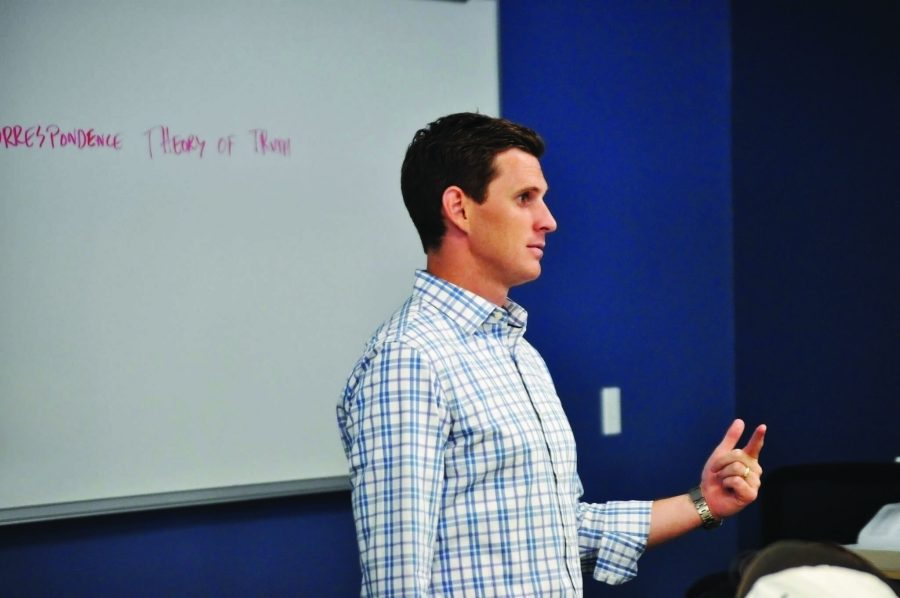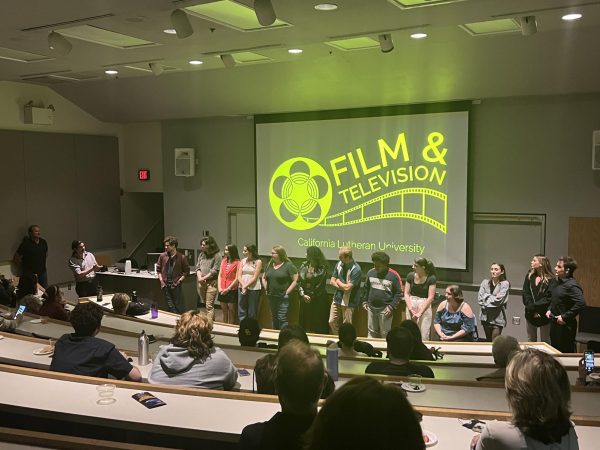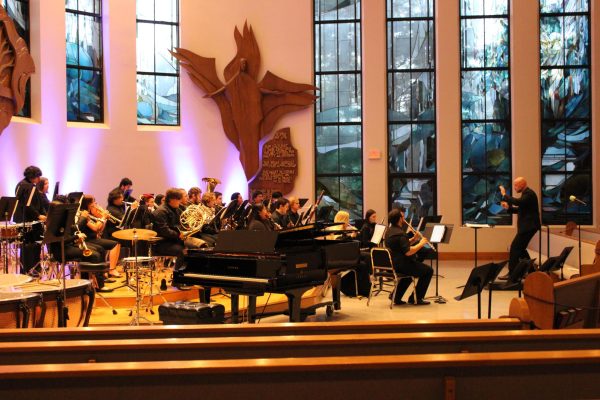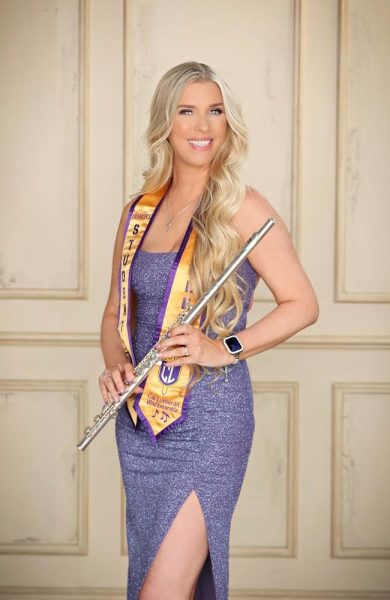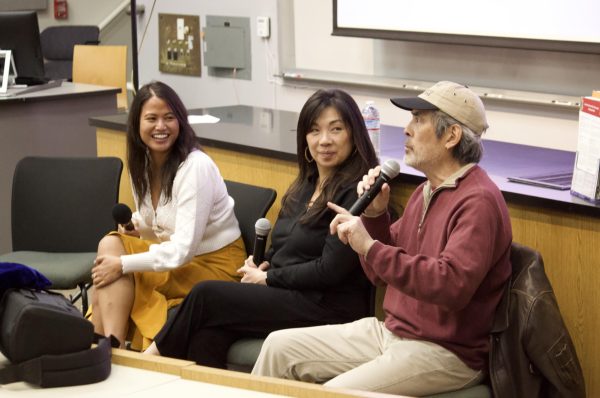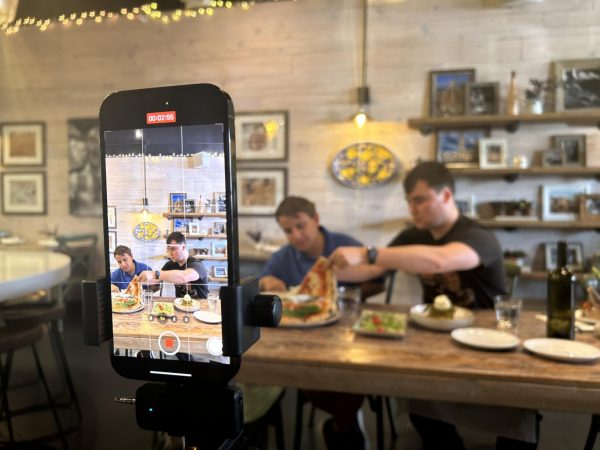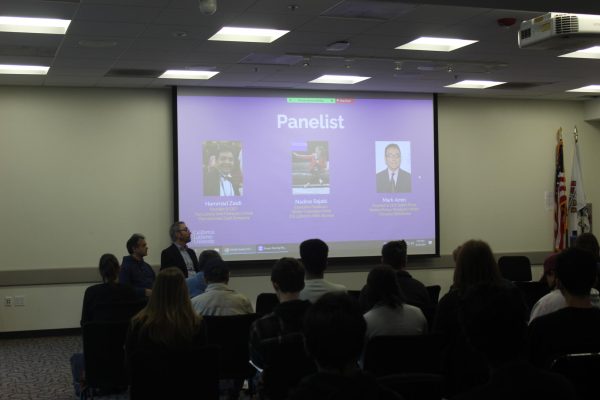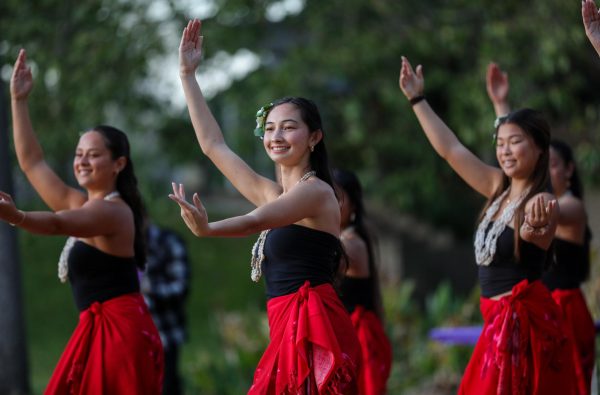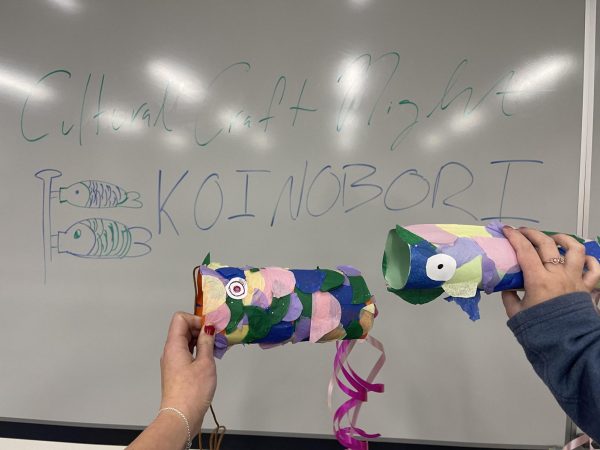Professor Collins’ SoCal Philosophy Academy: ‘The Foundation of All Intellectual Activity’
April 21, 2020
Associate Professor of Philosophy at California Lutheran University, Brian Collins will continue to lead the SoCal Philosophy Academy, an immersive five-day opportunity for high school students to learn about meaningful philosophical discourse with use of a Graves Award in the Humanities grant.
“The main goal of the institute is simply to introduce high school students to the discipline and practice of philosophy,” Collins said in an email interview. “I believe this is important because the practice of philosophy (dialogue & critical thinking) is the foundation of all intellectual activity.”
This camp is designed to provide an opportunity for high school students who are eager to learn more about the discipline. Since Collins founded the camp in 2017, participation has almost doubled, reaching 50 students in 2019.
Cal Lutheran sophomore, Augustus Wachbrit, attended the SoCal Philosophy Academy as a high school student in 2017.
“It was a wonderful experience where I was able to meet and talk with philosophy majors and kids who were just as curious (and uneducated on matters of philosophy) as I was,” Wachbrit said in an email interview.
Wachbrit is an English and philosophy double major and feels that through the courses and opportunities he has experienced at Cal Lutheran, he has solidified his goal to work in the world of academia as a philosophy professor.
“Each year Cal Lu philosophy students have volunteered to assist with the institute – working with the high school students each day, engaging in discussions with them, pushing them to deepen their critical thinking, and modeling how philosophical investigation and discussion is done,” Collins said.
Wachbrit returned to the camp as a volunteer in 2019 where he also had the opportunity to conduct research, studying the relationship between philosophy education and critical thinking of the student participants.
“We wanted to know whether the institute was having an effect, and to what extent, on the critical thinking abilities of the students who enrolled in it,” Wachbrit said. “This is an important question because the results would obviously inform the programming for the institute in the future and could have further ramifications for philosophy education beyond Cal Lutheran and the summer institute.”
These findings were slated to be presented by the researchers at the University of California San Diego for the sixth annual Philosophy Learning and Teaching Organization conference in June. However, due to the ongoing COVID-19 pandemic, the event has been postponed until the summer of 2021.
Students who have attended this program in previous years have expressed the knowledge they gained was crucial to their practical understanding of everyday life.
Information about the program and updated status of the 2020 session is available on the website.
“Practicing thinking philosophically helps develop critical thinking, problem solving, and communication skills that are foundational and practically useful for all academic and career endeavors that one might want to pursue,” Collins said. “Stated simply, I believe that engaging in philosophical discussion and investigation can make someone a better, clearer, and more precise thinker.”

